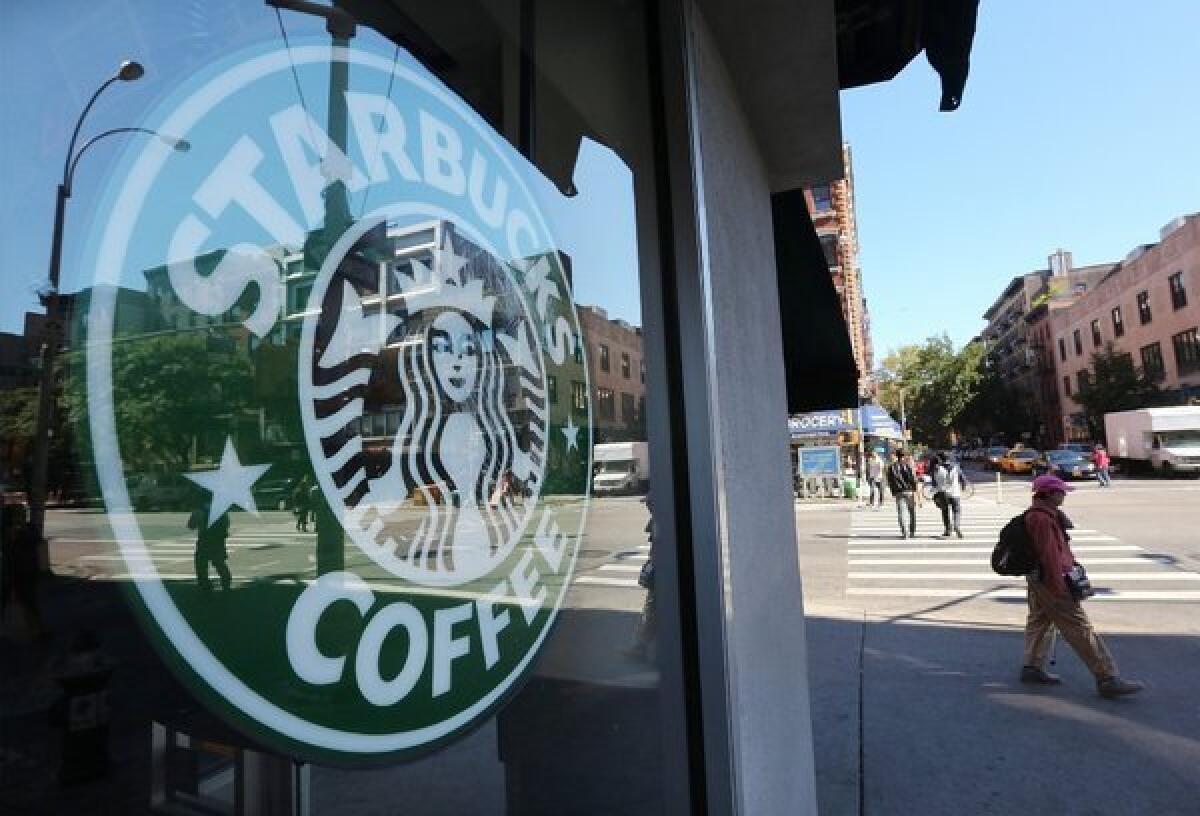The Starbucks effect: Should Big Business step into the debt limit fray?

- Share via
Howard Schultz, the chairman and chief executive of Starbucks, has jumped into the shutdown/debt limit mess with an open letter to his fellow business leaders urging them to pressure politicians to end the “current stalemate” in Washington.
Schultz’s letter stopped well short of proposing any specific solution to the stalemate. He called for “civility, compromise and problem-solving” and lamented the “the level of irresponsibility and dysfunction we are witness to with our elected political leadership.” Hard to argue with any of that.
He also avoided the false equivalency that neuters too much commentary about the stalemate: “I don’t pretend that both parties are equally to blame for this crisis,” he wrote. (He’s looking at you, House GOP.) But Schultz is a registered Democrat, so his finger-pointing won’t resonate much with Republicans.
It’s a measure of how muted the business community’s voice has been that Schultz’s rather modest exhortation resonates so loudly. And given the depth of the current crisis, we can say it’s about time. But we can also ask: How much do we want business leaders to say about politics?
Recent history tells us that political commentary by CEOs isn’t always aimed at civility and compromise. A year ago, Dan Cathy, president of his family-owned Chick-fil-A fast-food chain, unburdened himself of some noxious observations against same-sex marriage.
A year before that, Whole Foods co-founder and chief executive John Mackey expressed some remarkably uninformed views about the Affordable Care Act, which he called “the last thing our country needs.” He proposed a raft of alternatives, most of which would make health insurance utterly inaccessible and unaffordable for individuals.
Most CEOs try very hard to avoid provoking public furors this way. That’s why business lobbying tends to take place behind closed doors and is directed at specifics -- at tax breaks for industry, less regulation, etc., etc.
Yet it’s proper to ask why the business community has been largely silent about the impact of the government shutdown and the threat of a debt default. The only comments you’ve heard have come from Wall Street executives, whose firms are very directly threatened by an economic collapse. The U.S. Chamber of Commerce shot a letter to Congress urging action on the shutdown and the debt limit.
But every business is threatened. So where’s the rest of them? Presumably a few influential CEOs have informed their henchpersons in Congress that they’re leading the economy into the abyss, but a public stand might be lots more effective. It’s widely reported that the business lobby has lost its influence over the extreme wing of the Republican Party, but that may be because the jawboning has happened in private.
True, there’s a thin line between speaking out responsibly and saying too much. Charlie Wilson, the then-CEO of General Motors, was pilloried in 1953 for stating, “What’s good for General Motors is good for the country.” As it happened, he was misquoted. What he actually said was “for years I thought what was good for our country was good for General Motors, and vice versa.”
That’s the risk being just a teensy bit too quotable. Still, the current crisis is uniquely dangerous -- or more precisely, the ignorance and stupidity in Washington driving the current crisis are uniquely dangerous. Maybe Howard Schultz has a point, and the CEOs of America should stand up in public and provide a little education.
Reach me at mhiltzik@latimes.com, check out facebook.com/hiltzik and follow @hiltzikm on Twitter.
More to Read
Inside the business of entertainment
The Wide Shot brings you news, analysis and insights on everything from streaming wars to production — and what it all means for the future.
You may occasionally receive promotional content from the Los Angeles Times.











